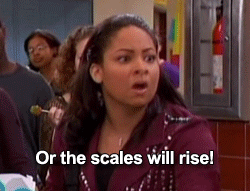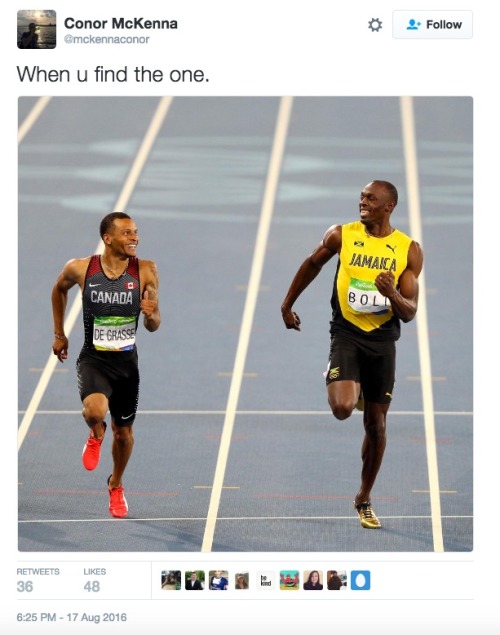Smparticle2 - Untitled






More Posts from Smparticle2 and Others













In slow motion, vortex rings can be truly stunning. This video shows two bubble rings underwater as they interact with one another. Upon approach, the two low-pressure vortex cores link up in what’s known as vortex reconnection. Note how the vortex rings split and reconnect in two places – not one. According to Helmholtz’s second theorem a vortex cannot end in a fluid–it must form a closed path (or end at a boundary); that’s why both sides come apart and together this way. After reconnection, waves ripple back and forth along the distorted vortex ring; these are known as Kelvin waves. Some of those perturbations bring two sides of the enlarged vortex ring too close to one another, causing a second vortex reconnection, which pinches off a smaller vortex ring. (Image source: A. Lawrence; submitted by Kam-Yung Soh)
Note: As with many viral images, locating a true source for this video is difficult. So far the closest to an original source I’ve found is the Instagram post linked above. If you know the original source, please let me know so that I can update the credit accordingly. Thanks!






I’m never gonna finish this meme
5 cartoons/anime; 1/5 Spirited Away
OSKI

Pop-Outs: How the Brain Extracts Meaning From Noise
UC Berkeley neuroscientists have now observed this re-tuning in action by recording directly from the surface of a person’s brain as the words of a previously unintelligible sentence suddenly pop out after the subject is told the meaning of the garbled speech. The re-tuning takes place within a second or less, they found.
The research is in Nature Communications. (full open access)
The Six Types of Middle-Earth Names
1. Characters whose Names are Secretly Insults:

Samwise: means “Half-wise” or “Half-wit.” He is Stupid Gamgee
Faramir: Boromir’s name means “steadfast jewel”, but Faramir’s name just means “sufficient jewel.”
Sufficient.
Denethor took one look at baby Faramir and thought “eh I guess he exists or whatever” which is very in character
2. Characters who Have Way Too Many Names

Examples include Aragorn son of Arathorn son of Arador heir of Isildur Elendil’s son, descendant of Numenor, Thorongill, Eagle of the Star, Dúnadan, Strider, Wingfoot, Longshanks, Elessar, Edhelharn, Elfstone, Estel (”Hope,”) The Chieftain of the Dúnedain, King of the West, High King of Gondor and Arnor, and Envinyatar the Renewer of the House of Telcontar
Wait I’m sorry did I say “examples” plural Cuz that was all one guy 3. Characters whose parents must’ve been prophets

-Frodo means “wise by experience.” His story is about becoming wise by experience -A lady named Elwing turns into a bird (geddit)
4. Characters whose families were so lazy that they copy-pasted the same first half of a name onto multiple people

Théoden/Théodred Aragorn/Arathorn/Arador Éomer/ Éomund/Éowyn/Éorl Elladan/Elrohir/Elrond/Elros/Elwing/Elenwë/Elendil/Eldarion (the laziest family)
5.Characters whose Names are Expertly Designed so that Newbies can’t Remember Who is Who and Feel Sad

All the people mentioned in number 4 Celeborn, Celegorm, Celebrimbor, Celebrian All the rhyming dwarf names in the Hobbit Sauron and Saruman Arwen and Éowyn
6. Name so nice, you say it twice

Legoas Greenleaf: Legolas’s first name means “Greenleaf” in elvish. Legolas is Greenleaf Greenleaf (thranduil really likes green leaves ok) King Théoden’s name means King in Rohirric. Tolkien decided to name his king “King.” All hail King King this is what the fanbase means when we say tolkien was a creative genius with language

(Image caption: A new technique called magnified analysis of proteome (MAP), developed at MIT, allows researchers to peer at molecules within cells or take a wider view of the long-range connections between neurons. Credit: Courtesy of the researchers)
Imaging the brain at multiple size scales
MIT researchers have developed a new technique for imaging brain tissue at multiple scales, allowing them to peer at molecules within cells or take a wider view of the long-range connections between neurons.
This technique, known as magnified analysis of proteome (MAP), should help scientists in their ongoing efforts to chart the connectivity and functions of neurons in the human brain, says Kwanghun Chung, the Samuel A. Goldblith Assistant Professor in the Departments of Chemical Engineering and Brain and Cognitive Sciences, and a member of MIT’s Institute for Medical Engineering and Science (IMES) and Picower Institute for Learning and Memory.
“We use a chemical process to make the whole brain size-adjustable, while preserving pretty much everything. We preserve the proteome (the collection of proteins found in a biological sample), we preserve nanoscopic details, and we also preserve brain-wide connectivity,” says Chung, the senior author of a paper describing the method in the July 25 issue of Nature Biotechnology.
The researchers also showed that the technique is applicable to other organs such as the heart, lungs, liver, and kidneys.
The paper’s lead authors are postdoc Taeyun Ku, graduate student Justin Swaney, and visiting scholar Jeong-Yoon Park.
Multiscale imaging
The new MAP technique builds on a tissue transformation method known as CLARITY, which Chung developed as a postdoc at Stanford University. CLARITY preserves cells and molecules in brain tissue and makes them transparent so the molecules inside the cell can be imaged in 3-D. In the new study, Chung sought a way to image the brain at multiple scales, within the same tissue sample.
“There is no effective technology that allows you to obtain this multilevel detail, from brain region connectivity all the way down to subcellular details, plus molecular information,” he says.
To achieve that, the researchers developed a method to reversibly expand tissue samples in a way that preserves nearly all of the proteins within the cells. Those proteins can then be labeled with fluorescent molecules and imaged.
The technique relies on flooding the brain tissue with acrylamide polymers, which can form a dense gel. In this case, the gel is 10 times denser than the one used for the CLARITY technique, which gives the sample much more stability. This stability allows the researchers to denature and dissociate the proteins inside the cells without destroying the structural integrity of the tissue sample.
Before denaturing the proteins, the researchers attach them to the gel using formaldehyde, as Chung did in the CLARITY method. Once the proteins are attached and denatured, the gel expands the tissue sample to four or five times its original size.
“It is reversible and you can do it many times,” Chung says. “You can then use off-the-shelf molecular markers like antibodies to label and visualize the distribution of all these preserved biomolecules.”
There are hundreds of thousands of commercially available antibodies that can be used to fluorescently tag specific proteins. In this study, the researchers imaged neuronal structures such as axons and synapses by labeling proteins found in those structures, and they also labeled proteins that allow them to distinguish neurons from glial cells.
“We can use these antibodies to visualize any target structures or molecules,” Chung says. “We can visualize different neuron types and their projections to see their connectivity. We can also visualize signaling molecules or functionally important proteins.”
High resolution
Once the tissue is expanded, the researchers can use any of several common microscopes to obtain images with a resolution as high as 60 nanometers — much better than the usual 200 to 250-nanometer limit of light microscopes, which are constrained by the wavelength of visible light. The researchers also demonstrated that this approach works with relatively large tissue samples, up to 2 millimeters thick.
“This is, as far as I know, the first demonstration of super-resolution proteomic imaging of millimeter-scale samples,” Chung says.
“This is an exciting advance for brain mapping, a technique that reveals the molecular and connectional architecture of the brain with unprecedented detail,” says Sebastian Seung, a professor of computer science at the Princeton Neuroscience Institute, who was not involved in the research.
Currently, efforts to map the connections of the human brain rely on electron microscopy, but Chung and colleagues demonstrated that the higher-resolution MAP imaging technique can trace those connections more accurately.
Chung’s lab is now working on speeding up the imaging and the image processing, which is challenging because there is so much data generated from imaging the expanded tissue samples.
“It’s already easier than other techniques because the process is really simple and you can use off-the-shelf molecular markers, but we are trying to make it even simpler,” Chung says.

May 18, 1969 — Inside mission control at the Johnson Space Center, Houston, during the first day of the Apollo 10 mission. (NASA)




“Conceited, spoiled, and arrogant- all of those things, of course, are true to the character. But she had courage and determination, and that, I think, is why women must secretly admire her.” -Vivien Leigh
-
 sleepydreameroncloud9 reblogged this · 2 months ago
sleepydreameroncloud9 reblogged this · 2 months ago -
 needy-is-so-herss liked this · 4 months ago
needy-is-so-herss liked this · 4 months ago -
 annapt99w liked this · 6 months ago
annapt99w liked this · 6 months ago -
 swagfartkingdom liked this · 7 months ago
swagfartkingdom liked this · 7 months ago -
 paradiissee reblogged this · 8 months ago
paradiissee reblogged this · 8 months ago -
 eeeeeeeeeeeeeeeee3ee liked this · 9 months ago
eeeeeeeeeeeeeeeee3ee liked this · 9 months ago -
 blessedtings reblogged this · 1 year ago
blessedtings reblogged this · 1 year ago -
 9teenninety5 reblogged this · 1 year ago
9teenninety5 reblogged this · 1 year ago -
 maastrichtiana liked this · 1 year ago
maastrichtiana liked this · 1 year ago -
 gh0stblonde liked this · 1 year ago
gh0stblonde liked this · 1 year ago -
 retrogrim reblogged this · 1 year ago
retrogrim reblogged this · 1 year ago -
 natalia-alexandriah liked this · 1 year ago
natalia-alexandriah liked this · 1 year ago -
 cosmicretreat liked this · 1 year ago
cosmicretreat liked this · 1 year ago -
 disneyhobbitgirl reblogged this · 1 year ago
disneyhobbitgirl reblogged this · 1 year ago -
 disneyhobbitgirl liked this · 1 year ago
disneyhobbitgirl liked this · 1 year ago -
 weshallgreetthemorningtogether reblogged this · 1 year ago
weshallgreetthemorningtogether reblogged this · 1 year ago -
 meadowsw33t reblogged this · 1 year ago
meadowsw33t reblogged this · 1 year ago -
 meloncreature liked this · 1 year ago
meloncreature liked this · 1 year ago -
 downinmybeastheart liked this · 1 year ago
downinmybeastheart liked this · 1 year ago -
 genzgrl liked this · 1 year ago
genzgrl liked this · 1 year ago -
 thepantyraids reblogged this · 1 year ago
thepantyraids reblogged this · 1 year ago -
 thepantyraids liked this · 1 year ago
thepantyraids liked this · 1 year ago -
 castrobearista liked this · 1 year ago
castrobearista liked this · 1 year ago -
 middaysitcom liked this · 1 year ago
middaysitcom liked this · 1 year ago -
 ronnierocket91 liked this · 1 year ago
ronnierocket91 liked this · 1 year ago -
 ufufifigig liked this · 1 year ago
ufufifigig liked this · 1 year ago -
 burningslayer reblogged this · 1 year ago
burningslayer reblogged this · 1 year ago -
 burningslayer liked this · 1 year ago
burningslayer liked this · 1 year ago -
 theladyhibiscus reblogged this · 1 year ago
theladyhibiscus reblogged this · 1 year ago -
 supernovajazzy liked this · 1 year ago
supernovajazzy liked this · 1 year ago -
 askprosecutie liked this · 1 year ago
askprosecutie liked this · 1 year ago -
 littletroubledgrrrl liked this · 1 year ago
littletroubledgrrrl liked this · 1 year ago -
 shred-my-anxiety liked this · 1 year ago
shred-my-anxiety liked this · 1 year ago -
 theguyontheleft liked this · 1 year ago
theguyontheleft liked this · 1 year ago -
 pixxxelhotsauce reblogged this · 1 year ago
pixxxelhotsauce reblogged this · 1 year ago -
 pixelhotsauce liked this · 1 year ago
pixelhotsauce liked this · 1 year ago -
 purple-foxdemon-666 liked this · 1 year ago
purple-foxdemon-666 liked this · 1 year ago -
 pur-ugliest liked this · 1 year ago
pur-ugliest liked this · 1 year ago -
 cyanide-latte liked this · 1 year ago
cyanide-latte liked this · 1 year ago -
 proxypunch reblogged this · 1 year ago
proxypunch reblogged this · 1 year ago -
 proxypunch liked this · 1 year ago
proxypunch liked this · 1 year ago -
 abyssfairies liked this · 1 year ago
abyssfairies liked this · 1 year ago -
 want2beinthewoods liked this · 1 year ago
want2beinthewoods liked this · 1 year ago -
 queenfeelings420 liked this · 1 year ago
queenfeelings420 liked this · 1 year ago